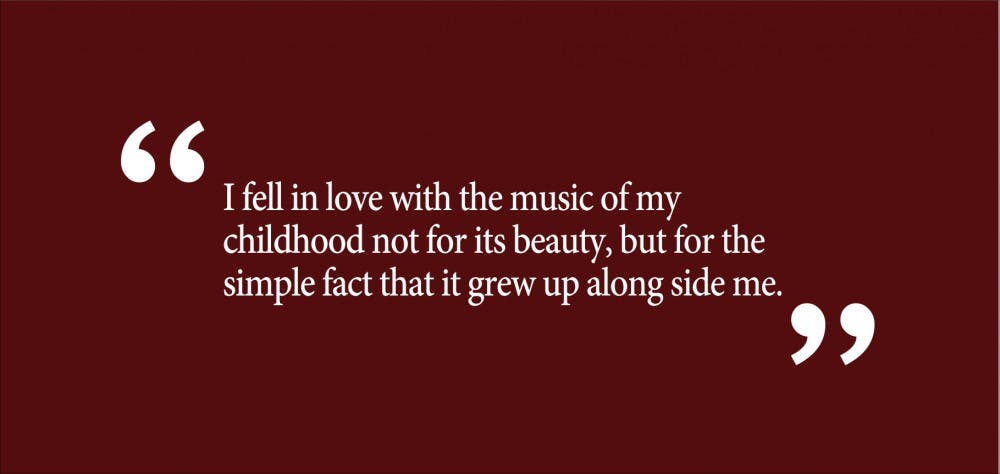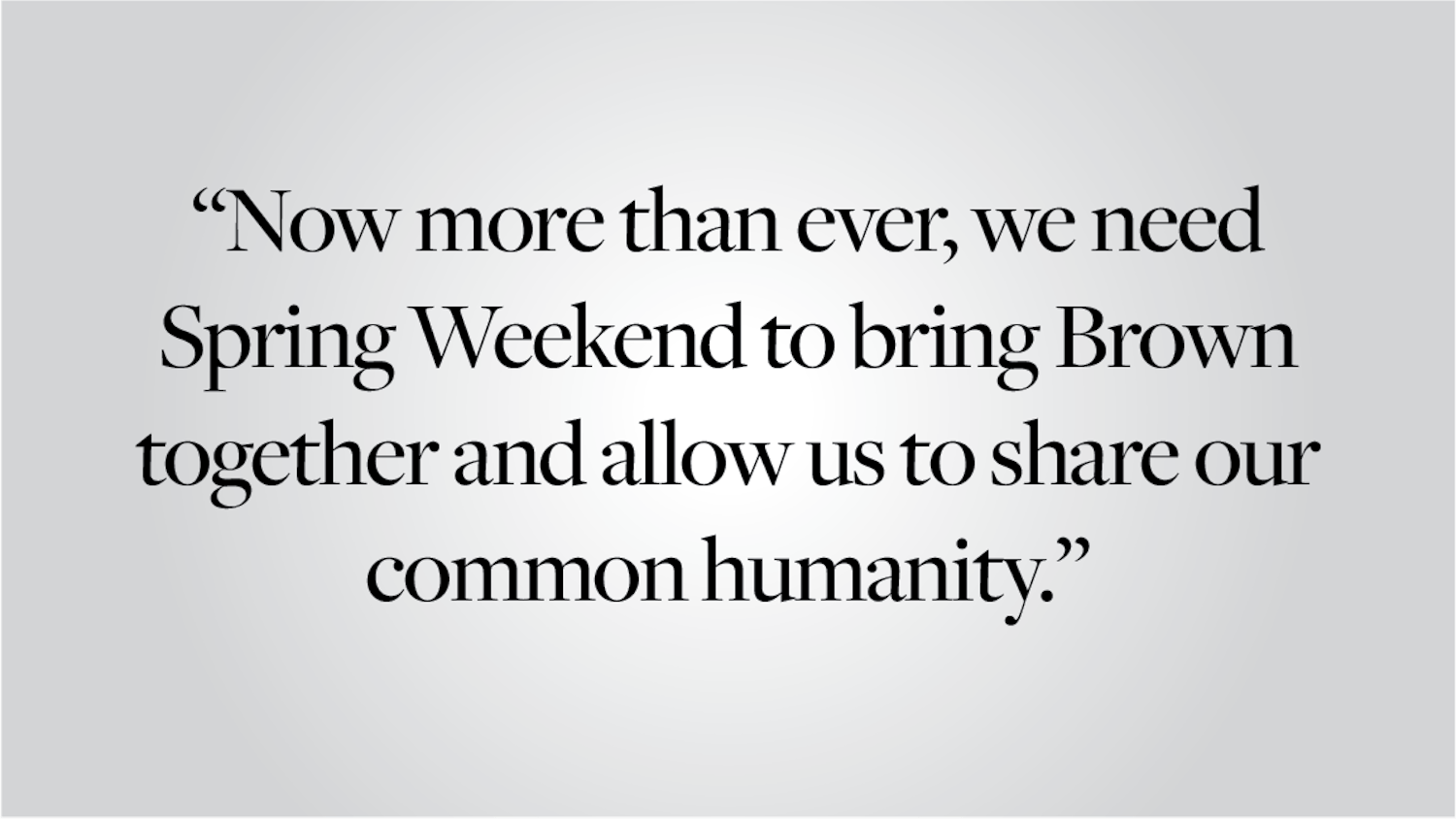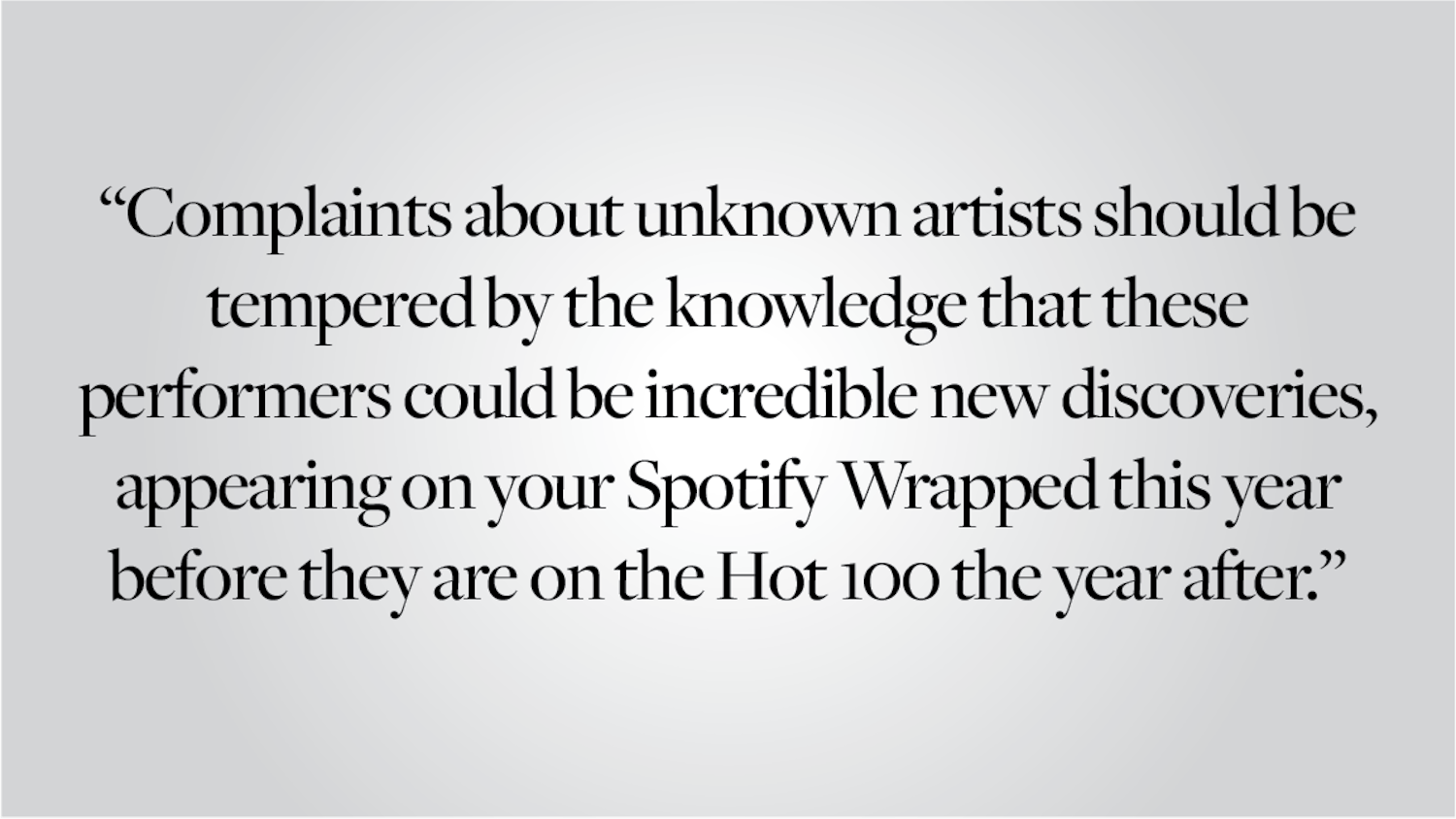Growing up, I would often hear complaints, usually from adults much older than myself, about the sorry state of modern songwriting.
As a young, impressionable kid, I sometimes felt like they had a point. New songs were trite and uninspired. Surely, they could never match the poetic beauty of Leonard Cohen’s “Hallelujah” or the twisting intricacies of Queen’s “Bohemian Rhapsody.” If you listened to the critics, you too would see the clear failures of Taylor Swift’s simplistic teenage fantasies or the consumerist chauvinism of Lil’ Pump, who once said the phrase “Gucci Gang” fifty times and made that a song. The music of the past was a temple, and the music of the present was a heresy.
I am older now, nineteen to be exact. I never really considered the music of my childhood as anything noteworthy. Though it may have been easy to romanticize the far-flung past, it felt difficult to reminisce about what still felt new. My songs were simply the ones that blared from the backseat of our minivan on the way to soccer practice.
But this skepticism about the merits of modern music has started to fade away. One day, I went online, and I found playlists I had never seen before — hits of the 2000s, top songs of the 2010s — populating the likes of YouTube and Spotify. It suddenly appeared as if the songs of my childhood were becoming immortalized, spoken of in the same language as all other momentous musical eras — the language of decades.
What would my lifetime of music be remembered for? I still do not know entirely. But the act of simply acknowledging the unique musical identity of the past twenty years lends our generation a new sense of legitimacy. Now, I can say for sure that music never got worse so much as it got misunderstood.
With great regularity, generations come to criticize their successors. The old attack the young, who seem to become lazier and less cultured each year. I speak, of course, in generalizations, conceding that this cynicism is not felt by all people from earlier generations. But our generation feels it still, the insinuation that our ways are inferior. If we don’t feel the critique at a systemic scale, we feel it subtly, hearing the gentle carping from our relatives and our teachers. We feel it in their judgment of our music, which is evidently more alienating than ever before. Its themes are too superficial. People just don’t sing as well as they used to. All of it is just a silly phase.
What those many detractors fail to see is that their objections are often artifacts of their own generational bias more than anything else. A famous, or perhaps infamous, example of cultural resistance occurred way back in the day with the music of Elvis Presley. Parents and priests alike mourned the ruin of the social fabric, a surefire consequence of the gyrating hips and scandalous songs of Presley’s performances. In hindsight, these reactions seem absurd. Today, not only are many people unaware of Presley’s former notoriety, many young children may have never even heard an Elvis Presley song. Few would consider his lyrics outrageous other than in their oldness.
What is the distinction then between musical progressivism and perversion? More than anything, I believe it is the influence of time. In the not so distant future, the vulgarity of a present-day SoundCloud rapper may become an object of antiquity, something that only grandpa and grandma listened to. While people are in the present, however, they have great trouble seeing the parallels, how their musical Luddism is a direct consequence of a broader historical pattern.
At the same time, with the impending arrival of adulthood, I think I can also understand why someone might yearn for past music, why they might reject modern preferences. I didn’t notice the feeling at first. Week by week, new songs sound much like their predecessors, sparkling with the same technopop optimism, autotuned melodies and clichés of romance. The change, if any, is so incremental that it is unnoticeable.
But then the years passed, and I realized slowly— with a sense of horror at my newfound agedness — that the banal beats of my childhood came out very long ago. They came out when Justin Bieber was still a squeaky-voiced teen, when I was still in elementary school letting lyrical innuendos fly over my head.
Those songs, the kind I once considered contemporary, have fermented over time, developing the patina of nostalgia. Their beauty is augmented, so when I hear the familiar rhythm of a Katy Perry song in the heat and haze of a dorm party, a hidden part of my soul stirs. It isn’t the depth of the songs that makes them special — comparing one’s love to a firework is far from nuanced. It is something else. I fell in love with the music of my childhood not for its beauty, but for the simple fact that it grew up alongside me.
At the age of nineteen, I am still young. But I am also moving onward from childhood to adulthood. Try as I might to familiarize myself with the new, I will no longer view the world as I once did. I will no longer appreciate new music as effortlessly because I will have lost the ability to grow up, to be innocent and unknowledgeable. At some point, I will start to hear music from the perspective of an outsider. One day, I may turn on the radio and gasp at the blasphemy I hear, and I will seek comfort in my own throwbacks.
In 1966, The Who, an English rock band, released the song “The Kids Are Alright,” part of the power pop genre all the rage at the time. Throughout the song’s progression, the upbeat melody returns time and time again to the titular refrain “the kids are alright,” repeated as if hearing it the first time is not enough, as if we all need to be convinced of its truth.
Nearly five decades later, in 2015, rapper Kendrick Lamar released a similarly titled song, “Alright,” a track coming from a genre that did not exist back in 1966. It is a song of hopeful conviction. Laced within the lyrics, Lamar proclaims “we gon’ be alright.”
These two songs, spanning multiple decades and generations, are no doubt different. And yet, they also show us how little we change at all. The world will alter. Children will grow up and grow old. Music will evolve. But somehow, some way, the kids are alright — we will be alright.
Johnny Ren ’23 can be reached at jiawei_ren@brown.edu. Please send responses to this opinion to letters@browndailyherald.com and op-eds to opinions@browndailyherald.com.





